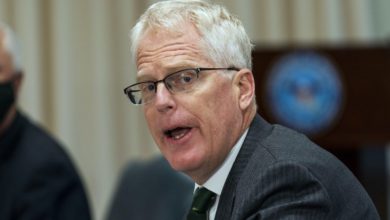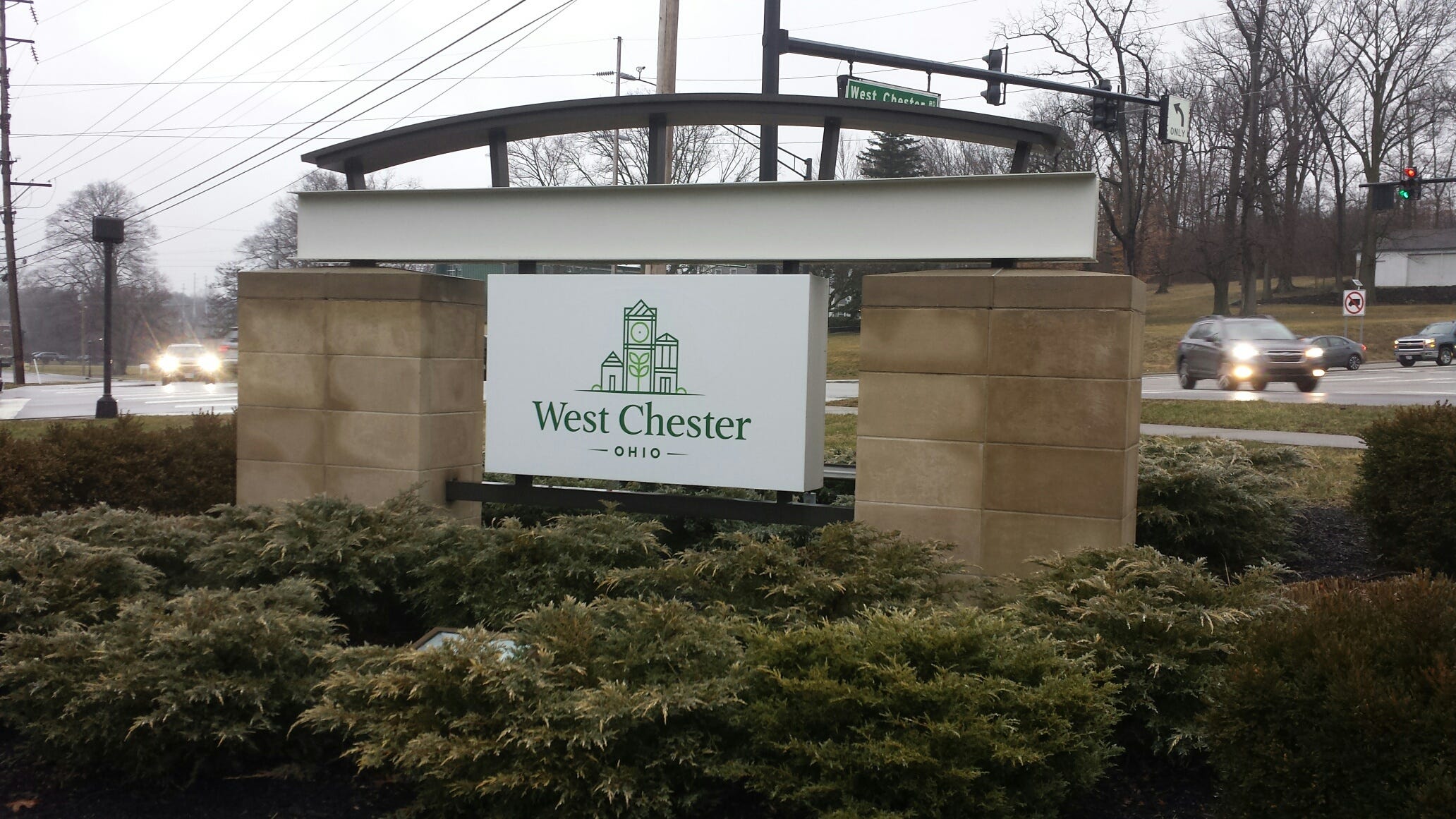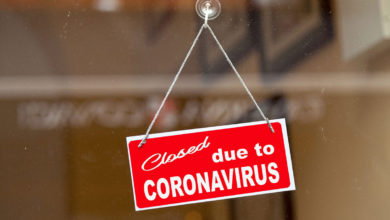

Surveillance video shows the encounter between a Metro bus operator and a rider that ended with the rider taking a ride on an ambulance instead of the bus.It happened in late August in Avondale.Henry Parkel of Golf Manor went to a gospel concert at an Avondale church. He had pre-booked a ride home on a Metro Access bus, which is designed for people with disabilities. He said he thought his portable oxygen machine was charging during the concert."I noticed that this machine was not holding the charge," he told WLWT days after the incident. When he left the church to get on the bus, he said his machine was at 8% oxygen level. He told WLWT he has used the cigarette lighter on access buses numerous times in the past to charge his machine when the battery is running low. WLWT requested surveillance video from Metro a few days after the incident. It was released to WLWT this week. The video shows Parkel riding up to the bus on his motorized wheelchair and start to drive onto the ramp. Parkel and the driver have a brief conversation that is difficult to hear. "It won't charge up," Parkel is heard saying. "It won't charge up?" the operator asked. "You can't charge it on the bus?" Parkel responded. The video shows the bus operator walk to the front of the bus and get on his radio. "I'm over here picking up Mr. Parkel. His device is not charged again. And from what I hear they said you can't charge them on the bus anymore," the operator said."I got to call 911," Parkel said in the background. "Now he talking about he gotta call 911. That's not our responsibility neither," the operator said."Correct. Um, if he can't try to get it charged and I'll try to send another bus for him. But, um, we can't do anything else. If he can't get it charged there where he's at, he's gonna have to call 911," the supervisor said.The video shows the operator put the ramp back up and then return to the driver's seat and drive off.Parkel is seen on the sidewalk with his phone in hand. He left in an ambulance and was taken to the hospital. Parkel said a week before the incident, he had another encounter with the same driver when he asked to charge his low battery. Parkel said the driver argued with him at first but then accommodated him. Metro said it conducted a review of the incident, including video footage and interviews. The investigation found staff followed Metro policy.SORTA/Metro released the following statement to WLWT from Sr. VP of External Affairs Brandy Jones. "Providing our customers a safe and convenient transportation is Metro and Access' top priority. Following Mr. Parkel's experience with Access on Aug. 27, we have expressed our apologies and, as a measure of good faith, provided him with vouchers for future trips on Access, in the hope that he will remain a loyal Access customer. "Following his communication to us about his experience, we conducted a review, which included audio and video feeds as well as conversations with staff and multiple follow-up phone conversations with Mr. Parkel. That review found that Mr. Parkel had a similar malfunction of his medical device the weekend prior, at which time he was allowed to charge his device for an adequate time that he felt comfortable getting home before his trip began. Access policy, per FTA guidelines, prohibits any service modifications that would create a health/safety hazard for others involved. As such, at the time of Mr. Parkel's first device malfunction, he was advised that he should not rely on that accommodation in the future, as extending the charging cable and breathing tube across the length of the vehicle posed a safety hazard for him, the operator and any other passengers that might board during the trip. When the same situation arose again a week later, Access staff followed policy by first offering to send a vehicle at a later time while he charged his device in the nearby church (which a fellow church patron had offered to accommodate). Upon his refusal of that offer, Access staff advised Mr. Parkel to dial 911, as he was in an emergent medical situation. Staff waited with him until emergency crews arrived and confirmed his safety."As a result of this review, leadership have discussed the incident with all parties involved – including the operator and Mr. Parkel himself – and reiterated Access policy regarding modifications of service, to ensure this situation does not arise again in the future."
Surveillance video shows the encounter between a Metro bus operator and a rider that ended with the rider taking a ride on an ambulance instead of the bus.
It happened in late August in Avondale.
Henry Parkel of Golf Manor went to a gospel concert at an Avondale church. He had pre-booked a ride home on a Metro Access bus, which is designed for people with disabilities. He said he thought his portable oxygen machine was charging during the concert.
"I noticed that this machine was not holding the charge," he told WLWT days after the incident.
When he left the church to get on the bus, he said his machine was at 8% oxygen level. He told WLWT he has used the cigarette lighter on access buses numerous times in the past to charge his machine when the battery is running low.
WLWT requested surveillance video from Metro a few days after the incident. It was released to WLWT this week.
The video shows Parkel riding up to the bus on his motorized wheelchair and start to drive onto the ramp.
Parkel and the driver have a brief conversation that is difficult to hear.
"It won't charge up," Parkel is heard saying.
"It won't charge up?" the operator asked.
"You can't charge it on the bus?" Parkel responded.
The video shows the bus operator walk to the front of the bus and get on his radio.
"I'm over here picking up Mr. Parkel. His device is not charged again. And from what I hear they said you can't charge them on the bus anymore," the operator said.
"I got to call 911," Parkel said in the background.
"Now he talking about he gotta call 911. That's not our responsibility neither," the operator said.
"Correct. Um, if he can't try to get it charged and I'll try to send another bus for him. But, um, we can't do anything else. If he can't get it charged there where he's at, he's gonna have to call 911," the supervisor said.
The video shows the operator put the ramp back up and then return to the driver's seat and drive off.
Parkel is seen on the sidewalk with his phone in hand. He left in an ambulance and was taken to the hospital.
Parkel said a week before the incident, he had another encounter with the same driver when he asked to charge his low battery. Parkel said the driver argued with him at first but then accommodated him.
Metro said it conducted a review of the incident, including video footage and interviews. The investigation found staff followed Metro policy.
SORTA/Metro released the following statement to WLWT from Sr. VP of External Affairs Brandy Jones.
"Providing our customers a safe and convenient transportation is Metro and Access' top priority. Following Mr. Parkel's experience with Access on Aug. 27, we have expressed our apologies and, as a measure of good faith, provided him with vouchers for future trips on Access, in the hope that he will remain a loyal Access customer.
"Following his communication to us about his experience, we conducted a review, which included audio and video feeds as well as conversations with staff and multiple follow-up phone conversations with Mr. Parkel. That review found that Mr. Parkel had a similar malfunction of his medical device the weekend prior, at which time he was allowed to charge his device for an adequate time that he felt comfortable getting home before his trip began. Access policy, per FTA guidelines, prohibits any service modifications that would create a health/safety hazard for others involved. As such, at the time of Mr. Parkel's first device malfunction, he was advised that he should not rely on that accommodation in the future, as extending the charging cable and breathing tube across the length of the vehicle posed a safety hazard for him, the operator and any other passengers that might board during the trip. When the same situation arose again a week later, Access staff followed policy by first offering to send a vehicle at a later time while he charged his device in the nearby church (which a fellow church patron had offered to accommodate). Upon his refusal of that offer, Access staff advised Mr. Parkel to dial 911, as he was in an emergent medical situation. Staff waited with him until emergency crews arrived and confirmed his safety.
"As a result of this review, leadership have discussed the incident with all parties involved – including the operator and Mr. Parkel himself – and reiterated Access policy regarding modifications of service, to ensure this situation does not arise again in the future."
Source link








